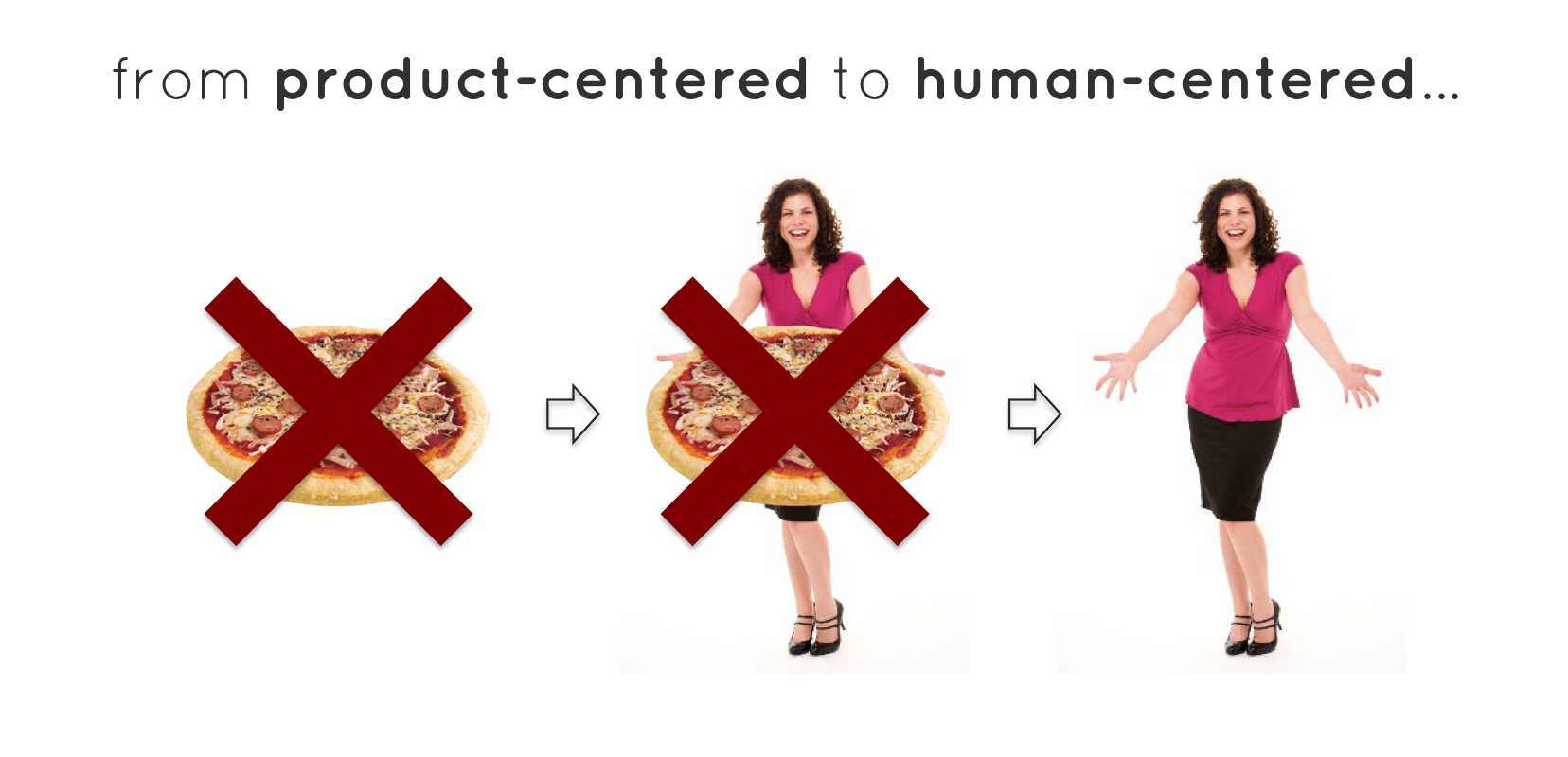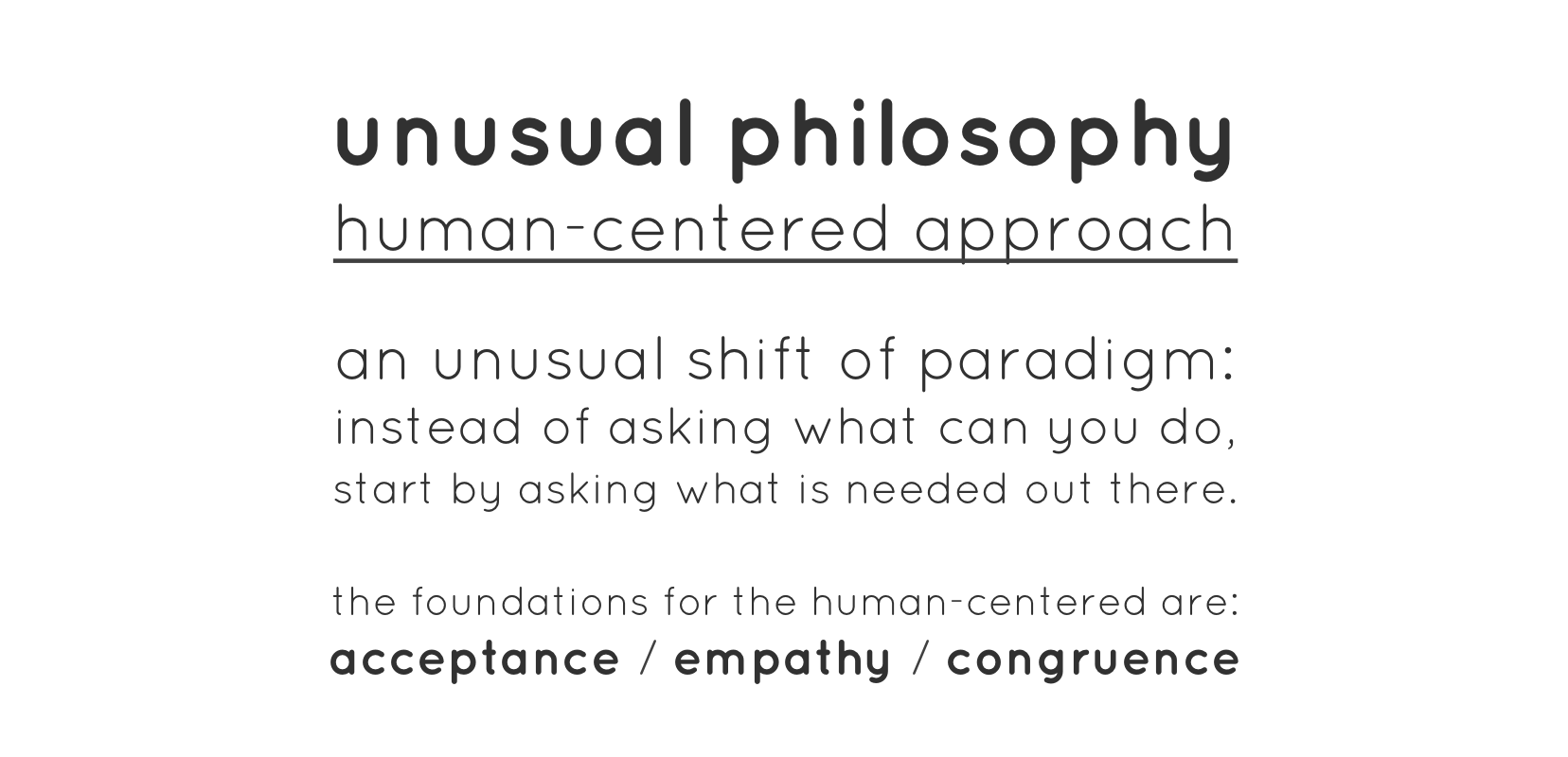The Human-Centered Approach
In the 70’s the market competition was already fierce, so Philip Kotler helped us organize it all. He created the 4 P’s of marketing (Product, Price, Place, and Promotion) and introduced the concept of Target, basically, where to aim our guns to.
But times have changed and so the balance of power. Nowadays, in the era of internet, people have more than ever the power to decide whether your brand will survive or not, enough information to take their decisions, and all the communication tools to spread the voice of what’s good or bad, what will succeed or disappear.
The value equation happens inside each consumer, so instead of Unique Selling Propositions, we have to focus on creating Unique Value Propositions.
The Human-Centered approach is an absolute shift of paradigm. When used as a pivot for your strategies, you start changing the perspective and nature of your questions. Instead of “I’m brand X and I need to innovate… what should I do?” you start with a different set of questions: “I’m consumer X, I think this way and believe in this, I behave in this manner, and I need this and that… what can you do for me?”
The Human-Centered approach was created originally as a psychotherapeutic approach. Its foundations rely on:
| Acceptance | Empathy | Congruence |
| Without conveying disapproving feelings, actions or characteristics and demonstrating a willingness to pay attention without interruption, judgment or giving advice. | The desire to understand and appreciate the client’s perspective. | The willingness to transparently relate to clients without hiding behind a facade. |
You may probably have heard about this approach by one of its multiple names, such as customer-centric, client-centric, user-centered, consumer-centered, or others. But all these names are based on a false/partial premise: they start from the assumption that the people you want to use as a pivot for your marketing strategies are already your customers, clients, users or consumers. So, while interesting for creating value for those who already have a relationship with your brand, we prefer to see the humans as they are, and not as they relate to your brand or category.
When applied to business and marketing strategies, the human-centered approach means that brands and startups have to understand people and their needs to create real value-propositions that will actually affect them positively.
Watch this short video (in spanish) about the Human-Centered approach, an excerpt of a conference by Ivan Babic.











